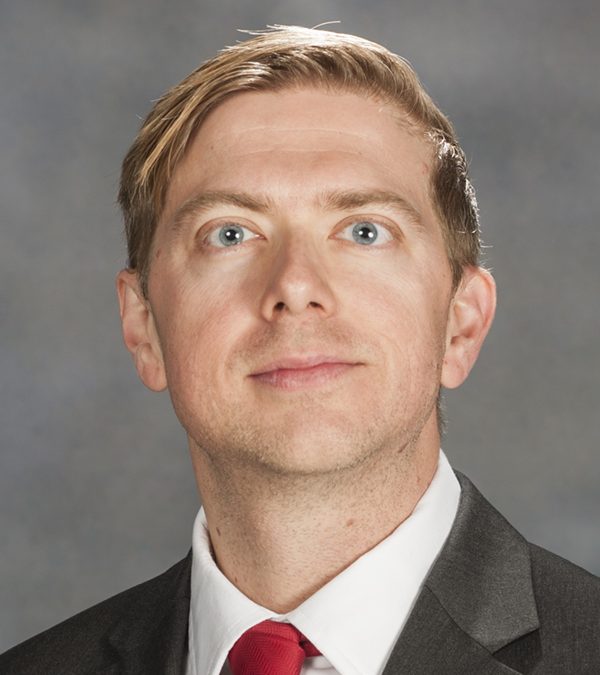DISTINGUISHED SPEAKER SERIES
For several decades, Springer has partnered with Cincinnati Children's and other leaders in education to bring nationally renowned experts in learning disabilities and ADHD to Cincinnati. Typically, the speaker will present an evening program for parents and a full-day workshop for educators, clinicians and other professionals. Click here to be notified of upcoming events.
Dr. Tim Odegard
Tim Odegard, Ph.D. is a professor of psychology and holds the Katherine Davis Murfree Chair of Excellence in Dyslexic Studies at Middle Tennessee State University. He also leads the efforts of the Tennessee Center for the Study and Treatment of Dyslexia. He also serves as Editor-in-Chief of Annals of Dyslexia. Before joining the faculty at MTSU, Tim served on the faculty at the University of Texas Arlington and UT Southwestern Medical School in Dallas. In addition to being a research scientist, Tim is a reading therapist, having completed a two-year dyslexia specialist training program at Texas Scottish Rite Hospital for Children in Dallas during his NIH funded postdoctoral fellowship.
Dr. Odegard presented two programs on Springer's campus in February 2023 as part of the Distinguished Speaker Series.
Running Miles for Dyslexia with Jared Blank
Jared S. Blank is a speaker, coach and athlete who was once told he wouldn't graduate high school. Diagnosed with dyslexia and sensory processing disorder as a child, Blank’s difficulties presented a significant challenge which he was able to manage through his love of running.
Blank enthusiastically shares how he faced his obstacles and used running as his safe space and pathway to the world. Learn how he earned two master’s degrees, became a World Marathon athlete (running 7 marathons on 7 continents in 7 days) and author. Through his speaking engagement, journey through his word, his pain, and his triumph. Listeners will be amazed and inspired by what is possible and come to understand why he is so passionate about sharing his story.
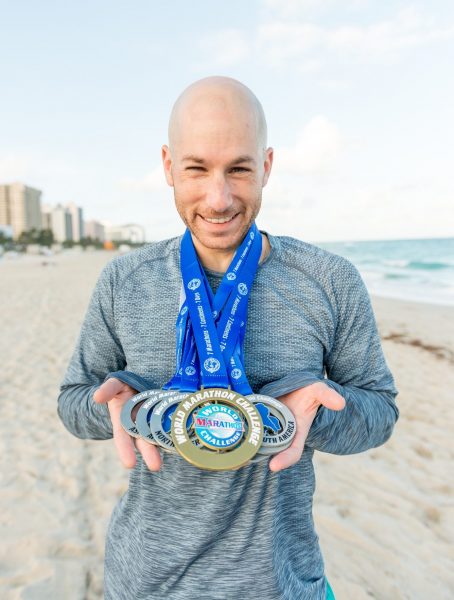
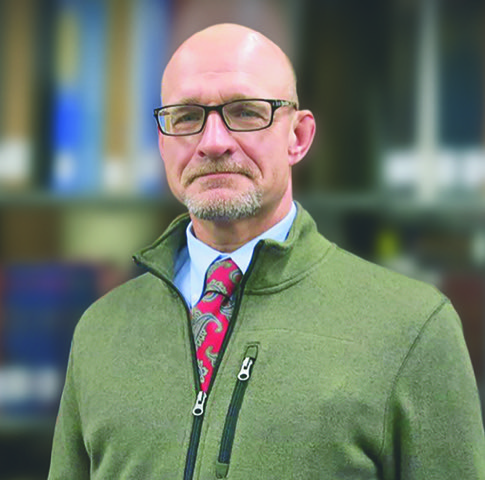
Dr. Andrew Johnson
2021-2022 Dr. Andrew Johnson is Professor of Education and Distinguished Faculty Scholar at Minnesota State University, Mankato. He specializes in literacy instruction for struggling readers, RTI for reading and writing, strategies for the inclusive classroom, and advanced pedagogy. After teaching in the classroom for 9 years, he received a PhD from the University of Minnesota in Literacy Instruction. He is the author of 14 books and numerous book chapters and academic articles related to literacy, learning, and the human condition. He is also the host of the podcast, The Reading Instruction Show at https://rss.com/podcasts/drandy.
Dr. Beverly Tatum
2021-2022 Dr. Beverly Tatum, president emerita of Spelman College and a clinical psychologist, is the author of several books that explore questions of race and education. Organized by Springer's ACTION Team, Dr. Tatum met with education professionals for a conversation around her book Why Are All the Black Kids Sitting Together in the Cafeteria? and Other Conversations About Race.
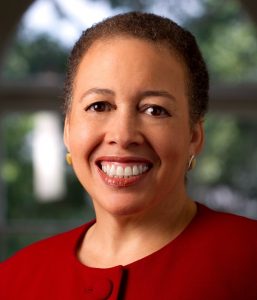

Jessica McCabe
2021-2022 To kick off LD/ADHD Awareness Month, Springer welcomed YouTube sensation and host of How to ADHD Jessica McCabe. In a live virtual session titled Getting Fish Out of Trees, One Brain at a Time, held in September 2021, Jessica shared her own experiences growing up and how she began to realize the importance of understanding what it means to have ADHD.
David Anderson, PhD
2020-2021 On February 11, Dr. David Anderson presented a virtual evening program for parents, Development of the Child with ADHD...What Does the Future Hold? in which he discussed strategies for success at home.
On February 12, Dr. Anderson facilitated a full-day workshop for educators and clinicians, Practical Strategies for Students with ADHD, in which he outlined multiple strategies for school success. Dr. Anderson is widely regarded as the go-to source on children and adolescents with ADHD. In addition to his work at the Child Mind Institute, he is dedicated to sharing his expertise through public outreach venues.
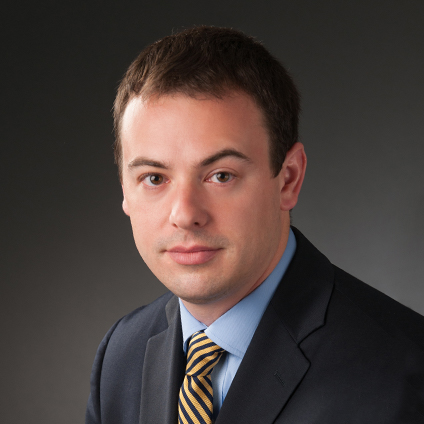

Jonathan Mooney
2020-2021 Jonathan Mooney presented a virtual program for parents, Making Difference Count, on October 20. Jonathan illustrated his ideas from his personal and professional experiences as a person with dyslexia and student with ADHD. Through his experiences and forward-thinking philosophies, Jonathan was able to present his broad academic knowledge of education, psychology, sociology and history of learning and disability. He has written three books, including his newest release Normal Sucks: How to Live, Learn, and Thrive Outside the Lines.
Despite not learning to read until the age of twelve, Jonathan became an award winning writer, entrepreneur, and activist. He holds an honors degree from Brown University, is a Harry S. Truman Scholar for Public Service (California, 1999), and was a finalist for a Rhodes scholarship.
Marilyn Zecher, MA, CALT
2019-2020 Ms. Zecher presented an evening program for parents, Why Some Students Struggle with Math and What We Can Do About It, on November 12, 2019. The program presented some common difficulties children face in learning mathematics and reviewed strategies and hands-on activities that can support learning.
A full-day program for educators, clinicians and other professionals, Multisensory Math: Teaching Mathematics in a Standards-Based Curriculum, was held on November 11, 2019. Ms. Zecher presented multisensory interventions that teach the foundations of mathematical literacy and reviewed the research and neuroscience underpinning these interventions. Participants worked with a variety of hands-on instructional tools and manipulatives.
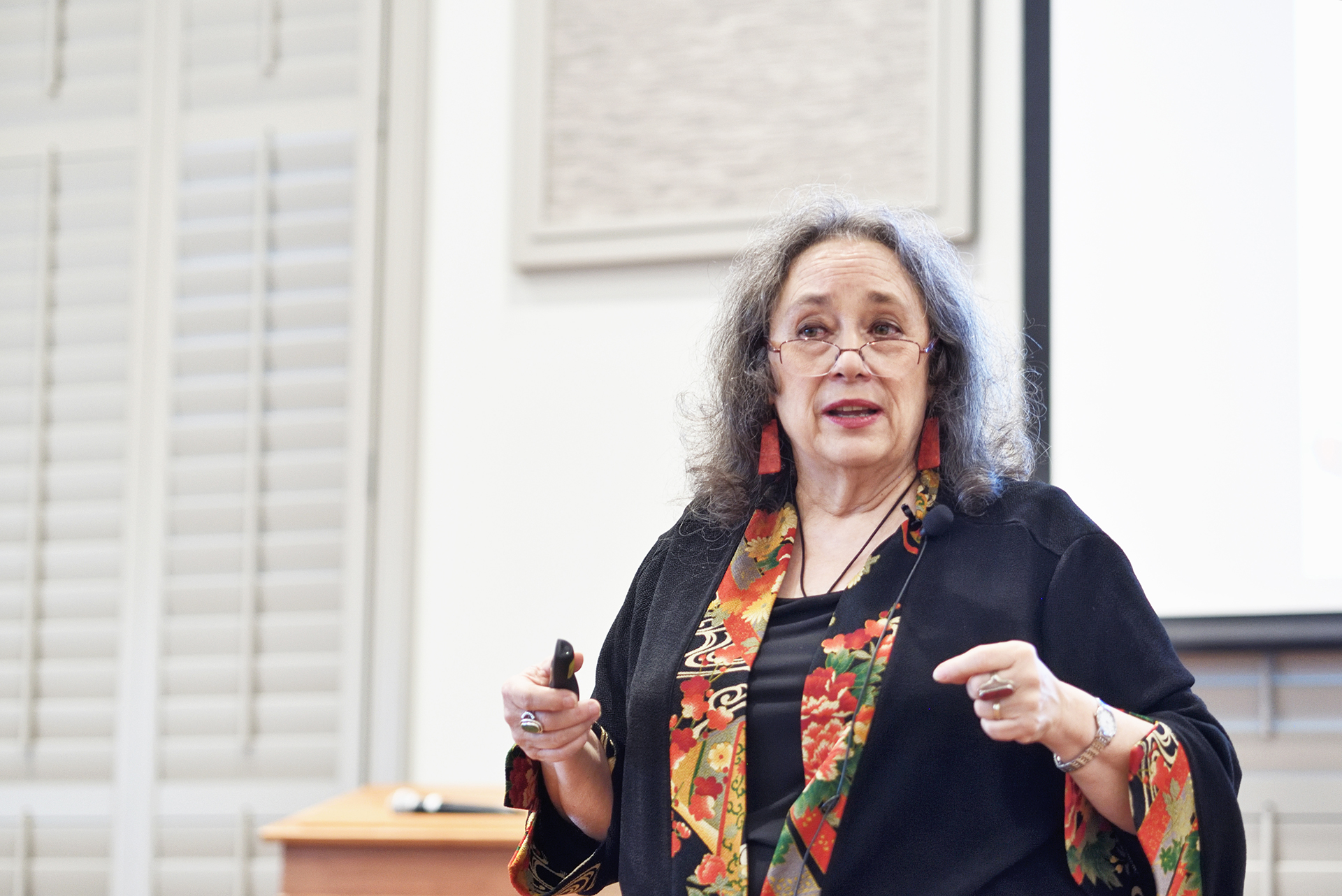

Lynn Meltzer, Ph.D. and Donna Kincaid, M.Ed.
2018-2019 On April 11, Dr. Lynn Meltzer presented an evening program for parents, The Child Beneath the Stress: Parenting Children with Executive Function Challenges. Dr. Meltzer explored the role of Executive Function in all aspects of academic success and drew on real-world experiences from classroom teachers and students who have overcome learning challenges.
On April 12, Dr. Meltzer and Ms. Kincaid facilitated a full-day workshop for educators, clinicians and other professionals. Executive Function Strategies: Optimizing Student Performance and Reducing Stress provided an overview of the important role of executive function processes in academic performance across grade levels and content areas. Practical approaches were discussed for promoting metacognitive awareness, flexible thinking, and executive function strategies as part of the classroom curriculum.
Ellen B. Braaten, Ph.D. and Patricia Quinn, M.D.
2017-2018 Dr. Braaten presented an evening program for parents, Parenting Bright Kids Who Can't Keep Up, on March 9. The program described the concept of processing speed and explained why it's important in today's fast-paced environments, and how to cope with a child who sometimes seems a step behind his potential.
A full-day program for educators, clinicians and other professionals, Hidden Obstacles to Student Success: ADHD in Girls and Slow Processing Speed, was held on March 19. Dr. Braaten spoke on the biology and neuropsychology of processing speed and how it manifests in classrooms and social relationships, and offered accommodations and interventions teachers and other professionals can use. Dr. Quinn spoke to the gender-specific manifestations of ADHD in preschool, elementary school and high school. She discussed the social/emotional challenges of girls with ADHD, and offered accommodations, interventions and treatments that can improve outcomes for girls with ADHD.


Jerome Schultz, Ph.D.
2016-2017 Dr. Jerome Schultz addressed parents on March 23 in a program entitled The Journey from Stress to Success for Students with LD/ADHD. Dr. Schultz explored chronic stress in school children and how stress impacts learning. The program reviewed the brain systems involved in the stress response and offered practical strategies that can reduce the cycle of stress.
In a full-day workshop for professionals entitled Stress: The Missing Piece of the LD/ADHD Puzzle, Dr. Schultz explored the neurobiology of stress and discussed the chronic stress that often accompanies LD and ADHD. Participants learned constructive ways of responding to stressed students and how the language they use can change students' mindsets and trajectories.
Thomas Brown, Ph.D. and Jack M. Fletcher, Ph.D., ABPP
2015-2016 In a program for parents, Executive Function, ADHD and Learning: A New Understanding, Dr. Thomas Brown dispelled common misperceptions about ADHD and presented scientific evidence that supports a new understanding of ADHD. He addressed the central role of Executive Function in meeting daily challenges and provided strategies for managing ADHD at school and at home.
Dr. Brown partnered with Dr. Jack Fletcher to present the full day workshop, Beyond the Stereotypes of ADHD and LD: Let the Experts Inform Your Work, for educators, clinicians and other professionals. Dr. Brown discussed new research on ADHD and the influence of temperament on emotion and motivation in students with ADHD. Participants learned about treatments and supports for students. Dr. Fletcher reviewed current research on learning disabilities and presented trends in teaching students with LD.


Peg Dawson, Ed.D., NCSP
2014-15 In the evening program for parents Calming the Chaos: Essential Skills That Help Smart but Scattered Students Reach Their Full Potential, Dr. Dawson explained how poor "executive skills" can impact achievement in school. Dr. Dawson offered strategies parents can use to help children acquire the critical skills they need to calm the chaos and become successful students.
Robert Brooks, Ph.D.
2013-2014 Dr. Robert Brooks presented Less Stress, More Balance: Keys to a Resilient Family on January 22. Parents who attended the program learned about healthy work/family balance, strategies for solving problems in the family, ways to foster self esteem within the family, and how to teach ownership and responsibility.
In the full-day professional development workshop Increasing Student Engagement: Strategies for Developing Motivated, Resilient Learners, Dr. Brooks guided educators and clinicians in examining the mindset they bring to their work with children. He explored the mindset of professionals who are effective in working with students and addressed the role of empathy in responding effectively to students. Participants learned strategies for reinforcing student engagement, motivation, learning, responsibility, caring and resilience.

Learn more about Center Programs:
- Filter by
- Categories
- Show all

